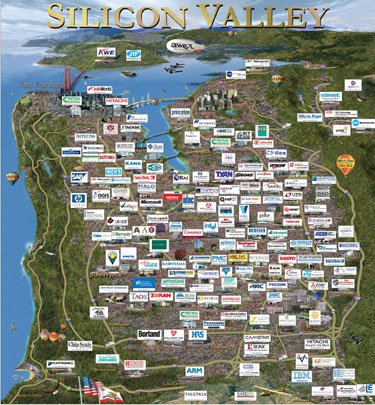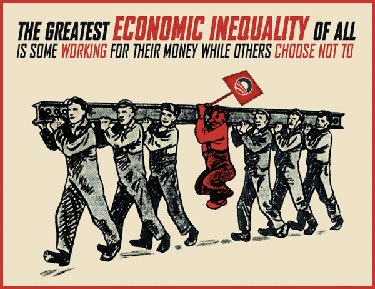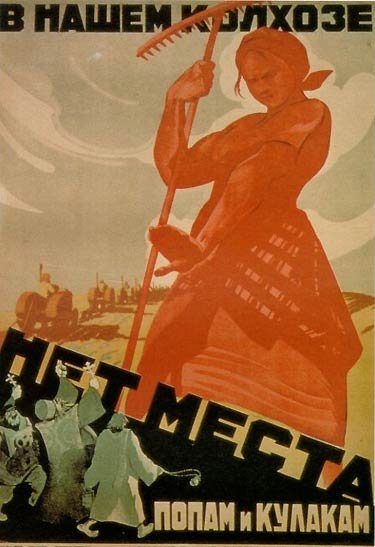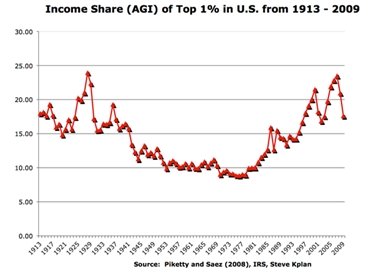Category Archive 'Inequality'
10 Jul 2018


Antonio GarcÃa MartÃnez analyses the California dystopia where everyone talks and votes left, but lives in an unequal (and rather squalid) society that makes Norman England look like the land of Equality.
California is the future of the United States, goes the oft-cited cliché. What the US is doing now, Europe will be doing in five years, goes another. Given those truthy maxims, let’s examine the socioeconomics of the “City by the Bay†as a harbinger of what’s to come.
Data shows that technology and services make up a large fraction of citywide employment. It also shows that unemployment and housing prices follow the tech industry’s boom-and-bust cycle. Amid the current boom, a family of four earning $117,400 now qualifies as low-income in San Francisco. Some readers laughed when I wrote in a memoir about working at Facebook that my six-figure compensation made me “barely middle class.†As it turns out, I wasn’t far off. With that credential, consider this rumination on bougie life inside the San Francisco bubble, which seems consistent with the data and the experience of other local techies.
San Francisco residents seem to be divided into four broad classes, or perhaps even castes:
The Inner Party of venture capitalists and successful entrepreneurs who run the tech machine that is the engine of the city’s economy.
The Outer Party of skilled technicians, operations people, and marketers that keep the trains belonging to the Inner Party running on time. They are paid well, but they’re still essentially living middle-class lives—or what lives the middle class used to have.
The Service Class in the “gig economy.†In the past, computers filled hard-for-humans gaps in a human value chain. Now humans fill hard-for-software gaps in a software value chain. These are the jobs that AI hasn’t managed to eliminate yet, where humans are expendable cogs in an automated machine: Uber drivers, Instacart shoppers, TaskRabbit manual labor, etc.
Lastly, there’s the Untouchable class of the homeless, drug addicted, and/or criminal. These people live at the ever-growing margins: the tent cities and areas of hopeless urban blight. The Inner Party doesn’t even see them, the Outer Party ignores them, and the Service Class eyes them warily; after all, they could end up there.
Mobility among the castes seems minimal. An Outer Party member could reach the Inner Party by chancing into an early job at a lottery-ticket company (such as Facebook or Google) or by becoming a successful entrepreneur. But that’s rare; most of the Outer Party prefers working for the Inner Party, gradually accumulating equity through stock grants and appreciating real estate.
The Service Class will likely never be able to drive/shop/handyman enough to rise to the Outer Party, at least not without additional training or skills. They’re mostly avoiding the descent to Untouchable status, while dealing with precarious gigs that disappear semi-regularly. Uber, for example, has made no bones about its intent to replace its drivers with robots. Delivery bots have already been deployed on city streets, though they were later restricted.
RTWT
28 Jun 2017


Giuseppe Cades, Achilles in his Tent with Patroclus, Playing a Lyre, surprised by Ulysses and Nestor, 1782, Louvre Museum.
Seth Benardete, “Achilles and the Iliad†quoted by Belacqui.
Achilles in the ninth book is found “pleasing his heart with the clear-toned lyre and singing the famous deeds of men†(klea andrÅn); wheres Aeneas, before disclaiming his genealogy to Achilles, remarks that “we know each other’s lineage and have heard the famous words of mortal human beings†(prokluta epea thnÄ“tÅn anthrÅpÅn). Deeds are done by andres, words are spoken by anthrÅpoi; and if human beings do anything, it is only the tillage of the fields. The heroes’ contempt for speeches is but part of their contempt for anthrÅpoi, and yet they depend on them for the immortality of their fame. AnthrÅpoi are the descendants of andres, the shadows, as it were, that the heroes cast into the future, where these poor copies of themselves live on; and as the adulation they will give would seem to justify their own existence, it is proper that these later generations, extolling the heroes beyond their worth, should look on them as demigods: so the word hÄ“mitheoi occurs but once, in a passage on the future destruction of the Achaeans’ wall, and not accidentally it is coupled there with andres (hÄ“mitheÅn genos andrÅn).
05 Jun 2015


The Onion quotes a devastating report identifying yet another form of startling inequality resulting in large-scale social injustice in America.
According to the sobering report, the disproportionate distribution of soda-can wealth is greater than ever before, and has become one of the worst instances of economic inequality in the nation’s history. Data showed that over-salvaging of cans by a small and elite group of can-horders has created a steadily growing and possibly unbridgeable gap between the rich and the mega-poor.
“Although our nation’s upper middle class actually consumes the most beverages, a staggering percentage of these cans wind up in the hands of a very few,” said economist Cynthia Pierce, who worked as a consultant on the three-year, $14 million government study. “It’s a troubling trend. And as a tiny fraction of the population continues to maintain its stranglehold on redeemable can wealth, it’s a trend that shows no sign of slowing.”
According to Pierce, the study points to a distinct economic advantage for the most can-affluent—those who possess the resources necessary to collect, transport, separate, and accumulate more and more cans than the rest of the population.
“Members of this exclusive group come from exceedingly poor backgrounds and have access to outrageously low levels of education, which makes them much better prepared to reap the benefits of digging around in garbage,” Pierce added. …
One canned individual cited in the study is can tycoon Will Dorsey, a 33-year-old Detroit resident who spent his childhood living off the funds collected from his family’s vast can holdings. At the age of 16, Dorsey inherited five carts and dozens of garbage bags overflowing with recyclables when his father passed away unexpectedly one cold December morning.
According to economist and New York Times columnist Paul Krugman, people like Dorsey, who maintain an ultra-poor lifestyle that is vastly different from the rest of the population, are egregiously out of touch with the everyday economic realities of mainstream America.
“Dorsey is one of those select few who come from old can money,” Krugman said. “They’re just hoarding their assets so nobody else can benefit. And then they parade down the street with their carts full of recycling.”
Read the whole thing.
Hat tip to Lynn Chu.
02 Oct 2014


Kevin Williamson wrote a terrific essay debunking the standard communist propaganda about inequality purveyed by Paul Krugman.
I live in the same city as Donald Trump, so the existence of rich people with toxic taste is not exactly a Muppet News Flash for me. But poor people are not poor because rich people are rich, nor vice versa. Very poor people are generally poor because they do not have jobs, and taking away Thurston Howell III’s second yacht is not going to secure work for them. Nobody has ever been able to satisfactorily answer the question for me: How would making Donald Trump less rich make anybody else better off?
There is, obviously, one direct answer to that question, which is that making Trump less rich by seizing his property and giving it to somebody else would make the recipients better off, and that is true. But the Left does not generally make that straightforward argument for seizing property. Rather, they treat “inequality†as though it were an active roaming malice on the economic landscape, and argue that incomes are stagnant at the lower end of the range because too great a “share of national income†— and there’s a whole Burkina Faso’s worth of illiteracy in that phrase — went to earners at the top. It simply is not the case that if Lloyd Blankfein makes a hundred grand less next year, then there’s $100,000 sitting on shelf somewhere waiting to become part of some unemployed guy in Toledo’s “share of the national income.†Income isn’t a bag of jellybeans that gets passed around.
Further, if your assumption here is that this is about redistribution, then you should want the billionaires’ incomes to go up, not down: The more money they make, the more taxes they pay, and the more money you have to give to the people you want to give money to, e.g., overpaid, lazy, porn-addicted bureaucrats.
A must-read.
14 Jun 2014


Tyler Durden quotes Charles Hugh-Smith & Bart describing how modern statism manages to keep the serfs locked in and under control.
I’ve been discussing the essence of Neofeudalism this week: those with access to the low-interest unlimited credit spigot of the Federal Reserve become more equal than others–the perfect Orwellian description of a Neofeudal arrangement in which financial leverage buys not just rentier assets but political power and control.
Neofeudalism depends on the cultural supremacy of Neoliberalism, the belief that the social order is defined and created by markets: if markets are free, participants, society and the political order are also free.
This conceptual framework is the perfect enabler for the dominance of credit-based, leveraged capital, i.e. Neofeudalism. In a “free market,” those with access to nearly-free money can outbid everyone who must rely on savings from earned income to finance borrowing. In a “free market” where those with access to leverage and unlimited credit are more equal than everyone else, the ability of wage earners to acquire rentier assets such as rental housing, farmland and timberland is intrinsically limited by the financial system that makes credit and leverage scarce for the many and abundant for the few.
Those with access to the low-interest unlimited credit spigot of the Federal Reserve are free to snap up tens of thousands of houses and tens of thousands of acres of productive land–the classic rentier assets that reliably produce unearned income because people need shelter and food–along with other rentier assets such as parking lots and meters, fossil fuels in the ground, and of course the engines of credit creation, the banks.
Longtime correspondent Bart D. recently summarized how this Neofeudal arrangement enables the few to control the many:
What if financial elites enter the market with their ‘free’ Federal Reserve cash and buy up a lions’ share of accommodation to keep home ownership unaffordable and force the majority to live as renters? If, in a dwindling economy, the Power Elite can’t hold power over the masses by keeping their jobs or other income streams under threat, maybe they will switch to wanting everyone to owe them rent and use the threat of homelessness as another tool to keep people under control.
It’s an extension of the food stamps concept. The system is moving towards making sure most people don’t have future access to the resources that enable them to survive and create wealth outside of the system.
I think the economy is now about controlling people. We are headed for a societal structure in which opportunities to rise economically will be increasingly stifled by those at the top. The money is irrelevant now, the real game is being played is in controlling tangible and ‘essential for life’ assets: housing, water delivery, food, clothing, energy. Those at the top want power to control everyone below them, particularly to keep them from revolting.
…
Load every person with a gargantuan student loan and an equally enormous mortgage and toss on an auto loan and credit card debt, and you have the perfect serf, too busy servicing his debt to question the arrangement, much less resist it.
People in the lower orders can resist by securing their own productive assets, but this takes effort, foresight, discipline and planning–all the characteristics that are eroded in a consumerist market economy that glorifies and promotes instant-gratification consumption.
This reduction of selfhood to consumption insures the brainwashed consumer has neither the savings nor the cultural tools needed to acquire financial and social capital. Debt-based consumerism insures the lower orders will never have the means to escape the Neofeudal arrangement.
26 Nov 2013


Atherton, Calfornia
Charlotte Allen, in the Weekly Standard, gives her readers a tour of the dystopian future represented by California’s Silicon Valley where left-wing politics goes hand-in-hand with spectacular inequality. The Tech Company owner lives in Atherton or owns, as the saying goes, “his own hilltop in Portola, while the merely upper-middle-class pay $1,200,000 to live in the sort of despicable ranch house equivalent of what a mailman might own in New Jersey. But they both have Mexican illegals to mow their lawns and paint their fences.
“If you live here, you’ve made it,†David Berkey said to me as I rode shotgun in his car two months ago through the Silicon Valley’s wealth belt. The massive house toward which he was pointing belongs to Sergey Brin, cofounder of Google. With a net worth of $24 billion, Brin is Silicon Valley’s third-richest denizen and the fourteenth-richest man in America, according to Forbes. Berkey was chauffeuring me down Atherton Avenue, a wide, straight, completely tree-lined boulevard nicely bifurcating the city of Atherton (population 7,200), located 29 miles south of San Francisco, boasting no commercial real estate, and with a zip code (94027) that was recently listed by Forbes as America’s most expensive.
You couldn’t really see Brin’s house from the car, though—just a swatch of rooftop, maybe a chimney—because the point of the trees lining Atherton Avenue and nearly every other street in Atherton is to hide the dwellings behind them. Where the screens of trees happen to thin, property owners have constructed high hedges, high wooden fences, and high brick walls, so that when you look down Atherton Avenue from the Santa Cruz Mountains to the west toward the commuter railroad station to the east, you see only the allée of trees—pine, palms, eucalyptus, sycamore, and juniper—shades of gray-green and brown-green shimmering placidly in the early autumn sun. “This is the Champs-Élysées of Atherton,†Berkey explained. The other thing we didn’t see from Berkey’s car is people, except for the occasional driver on the road. …
Berkey himself doesn’t live in Atherton. He can’t afford to. He’s a research fellow at Stanford’s Hoover Institution, and his wife, Eleanor Lacey, is general counsel at SurveyMonkey, which occupies Facebook’s old startup quarters in downtown Palo Alto. That makes them part of what is known as the “middle class†of Silicon Valley: two-career couples with family incomes in the low-to-mid six-figure-range. They and their two daughters live in neighboring Menlo Park, in what is essentially a modest 1950s tract house, the kind of flat-roofed, three-bedroom, two-bath, sliding-glass-patio-door, under-2,000-square-foot residences, pleasant but not pretentious, that were built en masse well into the 1970s as cheap starter homes, because back then it was conceivable that there could be such a thing as a cheap starter home in the valley. Berkey says his own house is currently valued at $1.2 million.
That’s par for the course. Open on any random day the Daily Post, the throwaway newspaper serving the mid-peninsula, and there will be a full-page ad for a “charming updated contemporary home†in Menlo Park or Palo Alto or Mountain View or Sunnyvale, with its single story, its gravel-topped roof, its living-room picture window, its teensy garden strip running alongside the jutting two-car garage that plugs into the kitchen, its pocket-size but grassy front lawn reminiscent of The Wonder Years—and its 1,216 square feet of living space—all “offered at $949,000.†That’s a bargain for the valley.
Berkey drove us out of Atherton, across El Camino Real, the peninsula’s main commercial highway, and across the railroad tracks past the tiny Atherton station, now part of California’s state-run Caltrain system and a commuter stop only on weekends. We were now in the featureless, nearly treeless, semi-industrial flatlands of Menlo Park stretching eastward to the bay. The demographic change was instant: ¡No se habla inglés! There were suddenly plenty of people on the sidewalks—and nearly every single one of them was Latino. There were suddenly plenty of commercial establishments—ramshackle, brightly painted, graffiti-adorned storefronts with hand-painted business signs mostly in Spanish: “Comida Nicaraguense,†“Restaurante Guatemalteco,†“CarnicerÃa†(pork chops and steaks crudely painted on the walls), “PescaderÃa†(fish and crustaceans crudely painted on the walls), “PanaderÃa,†“Check Cashing,†“Gonzalez Auto Sales,†“Sanchez Jewelry,†“Check Cashing,†“Arturo’s Shoe Repair,†“99¢ and Over,†“Check Cashing.â€
Menlo Park is actually only about 20 percent Hispanic and is unabashedly affluent in its own right, but its Hispanic population concentrated next door to the hedgy scrim of Atherton makes for a startling study in contrasts. No one pretends that the gravel-roofed, shack-size houses in this particular neighborhood are “charming†midcentury modern gems. That would be hard to do, what with the weeds, the peeling paint, the chain-link fences, the chained-up guard dogs, and the front lawns paved over to accommodate multiple vehicles for multiple dwellers. The phrase “the other side of the tracks†has vivid meaning. “Look at the newspaper police blotters, and you’ll see that in Atherton the main reported crime is identity theft,†said Berkey. “Here, it’s break-ins.â€
You can laud this underbelly barrio as vibrant immigrant culture or you can decry it as an instant-slum product of untrammeled illegal border-crossing, but it represents an important fact on the ground: These are the people who earn their livings tending to the needs of the high-tech “creative class†that has made Silicon Valley famous. I could see them on Atherton Avenue, the amanuensis class heading up from Menlo Park in their wee panel trucks and Dodge minivans and their Ford flatbeds fitted out with racks for garden tools among the Bentleys, BMWs, Audis, and Lexuses that are the standard Atherton vehicles. They tend the meticulously clipped lawns, flower beds, hedges, and trees of Atherton (Berkey said that it’s not uncommon for an Atherton sentence to begin, “My arborist .  .  . â€). They clean the houses and the swimming pools, they deliver the catering, they watch the children, and they repair the roofs, the plumbing, the balconies, and the wine cellars of the very affluent and the very busy. You might say that across-the-tracks Menlo Park, along with down-market Latino neighborhoods just like it up and down the peninsula—East Palo Alto, parts of Redwood City, the southern end of San Jose—functions as a kind of oversize servants’ wing. It’s safe to say that almost every hotel maid, restaurant busboy, cashier, janitor, retail stocker, and fast-food worker in the valley is Latino.
Master and servant. Cornucopian wealth for a few tech oligarchs plus relatively steady but relatively low-paying work for their lucky retainers. No middle class, unless the top 5 percent U.S. income bracket counts as middle class. Silicon Valley is a tableau vivant of what many economists and professional futurologists say is the coming fate of America itself, a fate to which Americans, if they can’t embrace it as some futurologists hope, should at least resign themselves.
While I was driving with Berkey around Atherton, Tyler Cowen, economics professor at George Mason University and author of The Great Stagnation (2011), published a new book, Average Is Over: Powering America Beyond the Age of the Great Stagnation. There, Cowen bluntly predicted what he called “wage polarization.†The increasing ability of computers to perform ordinary tasks will inexorably transform America into an income oligarchy in which the top 15 percent of people—with skills “that are a complement to the computerâ€â€”will enjoy “cheery†labor-market prospects and soaring incomes, while the bottom 85 percent, that is to say, 267 million out of America’s 315 million people, will be lucky to find Walmart-level jobs or scrape together marginal “freelance†livings running $25-a-pop errands for their betters via TaskRabbit (say, picking up and delivering a pair of designer shoes from Nordstrom) or renting out their spare bedrooms (if they have any) to overnight lodgers via Airbnb. That is, if they’ll be working at all. “There are many other historical periods, including medieval times, where inequality is high, upward mobility is fairly low, and the social order is fairly stable, even if we as moderns find some aspects of that order objectionable,†Cowen writes in his new book.
In other words, what is coming is the “new feudalism,†a phrase coined by Chapman University urban studies professor Joel Kotkin, a prolific media presence whose New Geography website is an outlet for the trend’s most vocal critics. “It’s a weird Upstairs, Downstairs world in which there’s the gentry, and the role for everybody else is to be their servants,†Kotkin said in a telephone interview. “The agenda of the gentry is to force the working class to live in apartments for the rest of their lives and be serfs. But there’s a weird cognitive dissonance. Everyone who says people ought to be living in apartments actually lives in gigantic houses or has multiple houses.â€
It’s hard to travel anywhere in the valley and not see what Kotkin is talking about.
Read the whole thing.
25 Jan 2013


Walter Russell Mead describes the democrat elite’s vision of the future: a massive system of redistributionism devoted to trickling down condescending alms to a nation of losers from a tiny meritocratic New Class elite which rules over all.
A conventional, widely shared view informs the way that blue America looks at that future. This view holds that the death of industrial society means the death of the mass middle class. When millions of people can’t make a living “making stuff†in factories anymore, wages for the unskilled will fall. America will be increasingly polarized between a small group of high skilled creative professionals and a larger group scavenging a living by serving them: mowing their lawns, catering their parties and so on.
Those who think that the blue model needs to be preserved and extended into the future (including, I think, our current president and most of his top allies and advisors), tend to think that under those conditions we will both need and be able to afford an ever-more active redistributive state. The tycoons and the very successful minority will be so rich, thanks to their continuing gains from globalization and technological change, that they can pay progressively higher taxes to fund basic services and middle class jobs for enough of the rest of the country that something like a middle class society can be preserved. From this perspective, a government-funded health care system is more than a method of delivering health care: it is a way of providing protected, blue-model type jobs when the factories have mostly disappeared.
Read the whole thing.
21 Jan 2013


“No Room In Our Collective Farm For Kulaks!”
Bill Clinton recently warned democrats that bitter clingers represent a serious threat to the democrat party’s socialistic agenda because they tend to be one-issue voters on gun control. He sympathized with the miserable wretches, who have nothing to do but hunt and fish, and proposed that ways and means be devised for neutralizing or coopting the pagani “rural primitives.”
Former President Bill Clinton warned a group of top Democratic donors at a private Saturday meeting not to underestimate the passions that gun control stirs among many Americans.
“Do not patronize the passionate supporters of your opponents by looking down your nose at them,†Clinton said.
“A lot of these people live in a world very different from the world lived in by the people proposing these things,†Clinton said. “I know because I come from this world.”
Clinton dedicated a substantial portion of his 40-minute address before a joint meeting of the Obama National Finance Committee and a group of business leaders to the issue of guns and gun control, saying that it was a test-case for President Barack Obama’s grass-roots movements. …
Clinton said that Republicans have been struggling in presidential politics since 1992 — noting that 2004 was the only time a Republican has won the popular vote in more than 20 years. But, he said, the party has been successful in energizing its supporters for midterm elections.
“You have the power to really democratize America,†Clinton said. “You can do it on immigration reform, you can do it on these economic issues. You can do it on implementing the health care bill.â€
But, Clinton warned, the issue of guns has a special emotional resonance in many rural states — and simply dismissing pro-gun arguments is counterproductive. …
[H]e said that he understands the culture that permeates a state like Arkansas — where guns are a longstanding part of local culture.
“A lot of these people … all they’ve got is their hunting and their fishing,†he told the Democratic financiers. “Or they’re living in a place where they don’t have much police presence. Or they’ve been listening to this stuff for so long that they believe it all.â€
——————————-
The admirably-cynical Mencius Moldbug casually eviscerates James Boyle’s belief in the equal availability of leniency in cases of disinterested civil disobedience, advanced apropos the prosecution of Aaron Swartz in response to two postings (one and two) by Orin Kerr at Volokh.
Professor Boyle, you see, attempting to be even-handed, tried balancing the (generally enthusiastically condoned) civil disobedience of Martin Luther King Jr. and Rosa Parks with ” the anti-abortion activist who trespasses on Planned Parenthood in order to spray paint his slogan.”
I’m quite confident that Professor Boyle doesn’t really believe Christians have the right to vandalize abortion clinics. As he makes quite clear by his use of Movement dog-whistles such as “reform” and “change,” what he really means is: the Party has the right to change the law, by displaying its own power to protect, even glorify, those who break it. The kulaks? Neighbor, don’t be ridiculous. The kulak exists to be beaten. …
“Special deterrence” is just one of the many 20th-century euphemisms which we use to cover the fact that we know perfectly well that might makes right. That is: Christians do not in fact have the right to vandalize abortion clinics (and get away with it, as Professor Boyle and I agree in wishing Aaron Swartz had gotten away with his JSTOR hack.)
Why don’t Christians have the right to vandalize abortion clinics? Because they do not have the might to do so (and get away with it). If they did, Christians would be on top and progressives would be on the bottom. We would live in a different country – one in which, as in most legal codes in human history around the globe, abortion was considered a serious crime. And there would be, of course, no such thing as an “abortion clinic.” …
As a power structure the American political system is a real work of art. For instance, one of the most basic ways to show power over someone is to take away something he has and wants to keep. It doesn’t have to be anything valuable, either to you or to him. Though it can be. Ideally, though, it’s of no real value to you, but considerable value (perhaps only sentimental or irrational value) to him. That way, it’s clear to everyone what the exercise is about: as Lenin put it, who beats whom.
I actually think it’s really wonderful that President Obama, even before the second term of his historic presidency, has jumped out so hard on the good old reliable beat-the-kulaks campaign trail. It’s always fun to be an overdog. But never forget to actually play the part. If you stop beating people, they might forget that you’re in charge.
Read the whole thing.
If anybody doubts the wisdom of the Moldbug, all he needs to do is to try a little civil disobedience experiment: Go and publicly brandish a large capacity rifle magazine somewhere in the District of Columbia in order to make your point, and see if District of Columbia Attorney General Irvin Nathan will refrain from prosecuting you the same way he delivered a pass to NBC News’s David Gregory for doing the same thing.
02 May 2012

The Times talks to one of Mitt Romney’s partners at Bain who has written a book explaining the vital role of inequality of result in providing the funding that makes innovation and economic growth possible.
[Edward] Conard, who retired a few years ago at 51, is not merely a member of the 1 percent. He’s a member of the 0.1 percent. His wealth is most likely in the hundreds of millions; he lives in an Upper East Side town house just off Fifth Avenue; and he is one of the largest donors to his old boss and friend, Mitt Romney.
Unlike his former colleagues, Conard wants to have an open conversation about wealth. He has spent the last four years writing a book that he hopes will forever change the way we view the superrich’s role in our society. Unintended Consequences: Why Everything You’ve Been Told About the Economy Is Wrong to be published in hardcover next month by Portfolio, aggressively argues that the enormous and growing income inequality in the United States is not a sign that the system is rigged. On the contrary, Conard writes, it is a sign that our economy is working. And if we had a little more of it, then everyone, particularly the 99 percent, would be better off. This could be the most hated book of the year. to be published in hardcover next month by Portfolio, aggressively argues that the enormous and growing income inequality in the United States is not a sign that the system is rigged. On the contrary, Conard writes, it is a sign that our economy is working. And if we had a little more of it, then everyone, particularly the 99 percent, would be better off. This could be the most hated book of the year.
This is a must-read story.
22 Oct 2011

Megan McArdle, Business and Economics editor at the Atlantic, was attending her tenth B-school reunion at Chicago and ran into econometrics specialist Steven Kaplan who had updated the Thomas Piketty and Emmanuel Saez data on top incomes through 2009.
The numbers show that income inequality fell sharply as the economy declined.
Isn’t that wonderful? Occupy demonstrators can clearly now pack up their tents and drums and go home.
Income inequality is clearly easy to cure. Simply adopt left-wing policies, ruin the economy, and sit back and watch all the boats sink, with the upper boats descending to levels much closer to their neighbors than before.
22 May 2011


Mark Steyn puts the former head of the IMF’s little hotel indiscretion into its proper cultural (and sociological) context.
Whatever the head of the IMF did or didn’t do, the reaction of the French elites is most instructive. “We and the Americans do not belong to the same civilization,” sniffed Jean Daniel, editor of Le Nouvel Observateur, insisting that the police should have known that Strauss-Kahn was “not like other men” and wondering why “this chambermaid was regarded as worthy and beyond any suspicion.” Bernard-Henri Lévy, the open-shirted, hairy-chested Gallic intellectual who talked Sarkozy into talking Obama into launching the Libyan war, is furious at the lèse-majesté of this impertinent serving girl and the jackanapes of America’s “absurd” justice system, not to mention this ghastly “American judge who, by delivering him to the crowd of photo hounds, pretended to take him for a subject of justice like any other.”
Well, OK. Why shouldn’t DSK (as he’s known in France) be treated as “a subject of justice like any other”? Because, says BHL (as he’s known in France), of everything that Strauss-Kahn has done at the IMF to help the world “avoid the worst.” In particular, he has made the IMF “more favorable to proletarian nations and, among the latter, to the most fragile and vulnerable.” What is one fragile and vulnerable West African maid when weighed in the scales of history against entire fragile and vulnerable proletarian nations? Yes, he Kahn!
Before you scoff at Euro-lefties willing to argue for 21st century droit de seigneur, recall the grisly eulogies for the late Edward Kennedy. “At the end of the day,” said Sen. Evan Bayh, “he cared most about the things that matter to ordinary people.” The standard line of his obituarists was that this was Ted’s penance for Chappaquiddick and Mary Jo Kopechne – or, as the Aussie columnist Tim Blair put it, “She died so that the Food Allergen Labeling and Consumer Protection Act might live.” Great men who are prone to Big Government invariably have Big Appetites, and you comely serving wenches who catch the benign sovereign’s eye or anything else he’s shooting your way should keep in mind the Big Picture. Yes, Ted Ken.
Nor are such dispensations confined to Great Men’s trousers. Timothy Geithner failed to pay the taxes he owed the United States Treasury but that’s no reason not to make him head of the United States Treasury. His official explanation for this lapse was that, unlike losers like you, he was unable to follow the simple yes/no prompts of Turbo Tax: In that sense, unlike the Frenchman and the maid, Geithner’s defense is that she wasn’t asking for it – or, if she was, he couldn’t understand the question. Nevertheless, just as only Dominique could save the European economy, so only Timmy could save the U.S. economy. Yes, they Kahn! …
The arrest of a mediocre international civil servant in the first-class cabin of his jet isn’t just a sex story: It’s a glimpse of the widening gulf between the government class and their subjects in a post-prosperity West. Neither Geithner nor Strauss-Kahn have ever created a dime of wealth in their lives. They have devoted their careers to “public service,” and thus are in the happy position of rarely if ever having to write a personal check. At the Sofitel in New York, DSK was in a $3,000-per-night suite. Was the IMF picking up the tab? If so, you the plucky U.S. taxpayer paid around 550 bucks of that, whereas Strauss-Kahn’s fellow Frenchmen put up less than $150. So if, as Le Nouvel Observateur suggests, France and America really do belong in entirely different civilizations, the French one ought to start looking for a new patron for the heroic DSK’s lifestyle.
11 Mar 2011


Mary Katherine Ham performs the math and demonstrates that total confiscation of all the assets of the rich would not, in fact, solve the federal entitlement spending problem.
This week, Michael Moore offered a simple and elegant solution to our debt problem.
Calling the assets of wealthy Americans a “national resource,†he suggested our problems would all be solved if we could just have access to all that money.
“What’s happened is that we’ve allowed the vast majority of that cash to be concentrated in the hands of just a few people, and they’re not circulating that cash. They’re sitting on the money,†Moore said. “That’s not theirs, that’s a national resource, that’s ours. We all have this… we all benefit from this or we all suffer as a result of not having it.â€
“America’s not broke,†he told a cheering crowd of pro-union protesters in Wisconsin. …
The United States of America has about 400 billionaires. Moore calls them “400 little Mubaraks.†About half of those have less than $2 billion each, and those with a net worth in the double-digit billions is an exclusive club of about 30.
Still, as Moore says, “there’s a ton of cash out there.â€
The grand total of the combined net worth of every single one of America’s billionaires is roughly $1.3 trillion. It does indeed sound like a “ton of cash†until one considers that the 2011 deficit alone is $1.6 trillion. So, if the government were to simply confiscate the entire net worth of all of America’s billionaires, we’d still be $300 billion short of making up this year’s deficit.
That’s before we even get to dealing with the long-term debt of $14 trillion, which if you’re keeping score at home, is between 10 to 14 times the entire net worth of all of the country’s billionaires, combined. That includes the all-powerful Koch brothers ($40 billion between them), the all-powerful George Soros ($14.5 billion), all the Walton family (of the Wal-Mart fortune), Steve Jobs, Oprah (at a paltry $2.7 billion), the Google Founders, Michael Bloomberg, and the Mars family (of the candy bar empire).
Contrary to the left’s favorite talking point, our economic problems do not have anything to do with inequality. The problem is actually the reverse: government is taking away from its rightful owners (and redistributing) so large a portion of this country’s economy that investment, enterprise, opportunity, and economic confidence have been depressed.
The real solution is for government to restrain its appetite and stand aside in order to allow the economy to function and to grow, increasing the general prosperity, lowering costs of goods and services, and making everybody better off.
Your are browsing
the Archives of Never Yet Melted in the 'Inequality' Category.
/div>

Feeds
|













